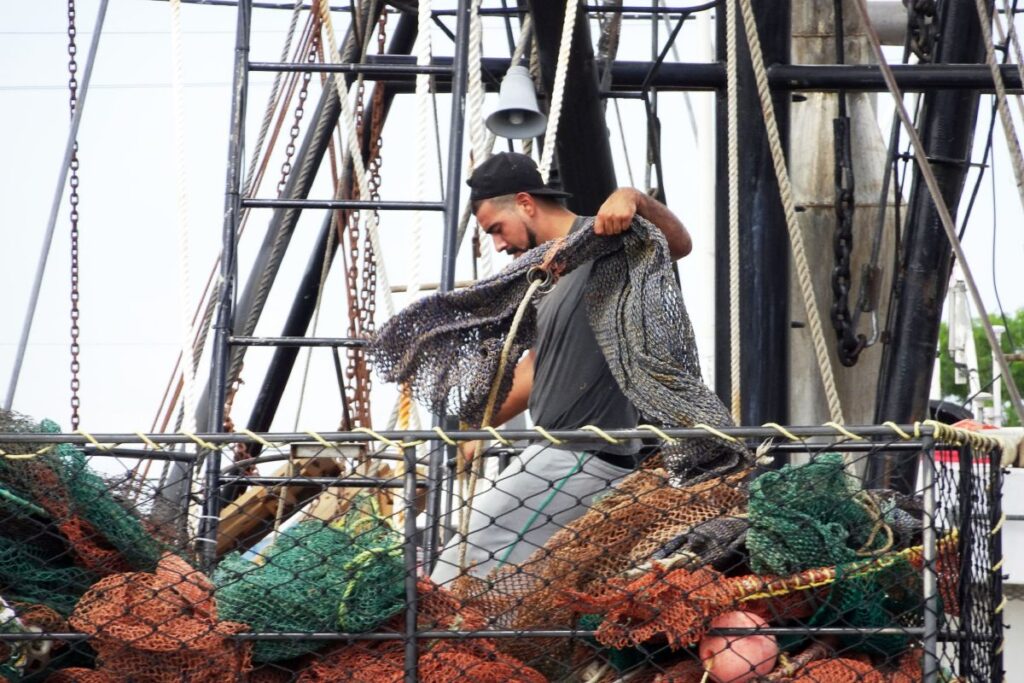U.S. officials have reportedly agreed to resume imports of some Mexican shrimp over a dispute about inadequate sea turtle protection that prompted a ban on shrimp imports issued April 30.
A report in the publication Mexico News Daily said some shrimp exports can resume, but Mexican officials have until June 1 to present a strategy to provide confirmation turtle excluder devices — which allow sea turtles to safely swim out of shrimp nets and not drown— are being deployed correctly by Mexican shrimpers.
At that point, if the evidence is insufficient, the ban could be reinstated.
“Through years of experience, the U.S. shrimp industry has developed commercial fishing methods that have been proven to dramatically reduce any impact on sea turtles,” said John Williams, the executive director of the Southern Shrimp Alliance.
“As populations of Kemp’s ridley, green, and loggerhead turtles rebound, the Section 609 program has become even more important for international conservation efforts,” Williams added. “The Mexican industry’s response to the State Department’s announcement proves that access to the United States market provides vital leverage to improve the environmental practices of foreign commercial fishing industries.”
The export of shrimp is a major business for Mexico, estimated to be worth about $300 million annually in U.S. dollars.
Tony Reisinger, the Cameron County coastal and marine agent for Texas Sea Grant and Texas A&M AgriLife Extension, has trained U.S. shrimpers on the construction and use of TEDS throughout the Gulf of Mexico.
“On construction of them, there are angles you have to cut and subscribe to or follow,” he said. “Your angle cannot be over 55 degrees because it is considered a turtle-killer. And if it’s less than that, you lose a lot of shrimp, so it’s important to have them correctly installed.”
The U.S. State Department suspended the import of wild-caught shrimp from Mexico because “its sea turtle protection program is no longer comparable to that of the United States.”
Six of the world’s seven species of marine turtles are listed as endangered or threatened.
Here in the United States, commercial shrimpers have adapted to using the TEDS, originally introduced in the 1970s, despite initial resistance.
“They still lose shrimp and they don’t like them, but it’s the Endangered Species Act, and they’ve worked to make them as efficient as possible,” Reisinger said.

The diplomatic dispute over shrimp came after U.S. authorities reported deficiencies in turtle protection in 106 Mexican shrimp nets following inspections.
Octavio Almada Palafox, head of Mexico’s National Aquaculture and Fishing Commission (Conapesca), told Mexico News Daily the Mexican government understands the importance of the issue and will pursue a satisfactory resolution.
“In the next few days there will be an intense exchange of information with the aim of reaching a positive outcome for Mexico,” he said. “The compromise of all those involved is required so that the product is sent in compliance with transparency and integrity, for which the Mexican government has established strict controls.”




